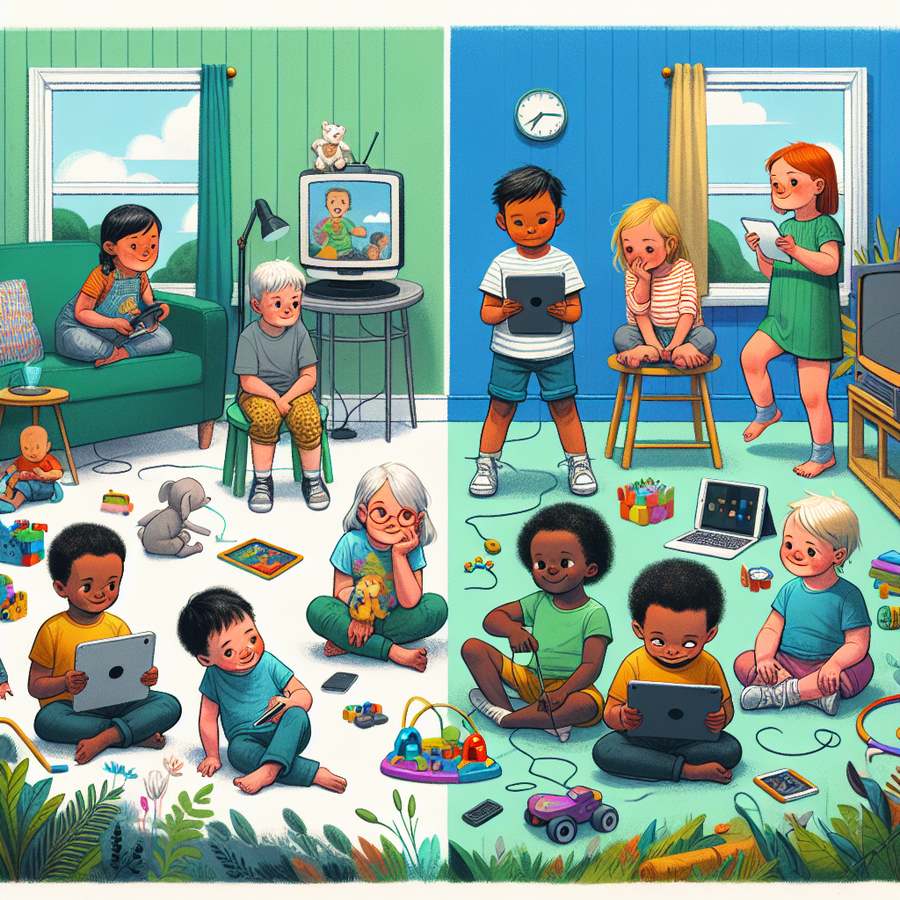Understanding the impact of early screen time on development is a critical aspect of modern parenting that requires careful consideration and informed decision-making. As technology becomes increasingly prevalent in our daily lives, the question of how early exposure to screens affects children’s developmental trajectory is more relevant than ever.
The Foundation of Concern: Understanding the Impact of Early Screen Time on Development
Early childhood is a period of rapid brain development, during which external stimuli can have profound effects on cognitive, emotional, and physical growth. As such, the impact of early screen time on development is a topic of considerable interest and concern among parents, educators, and healthcare professionals. A growing body of research suggests that excessive screen time in the early years can lead to several developmental challenges, including delays in language acquisition, reduced attention span, and impaired social skills.
One major concern associated with early screen time is its potential to disrupt the natural learning processes that occur through direct interaction with the environment. Activities such as exploring physical objects, engaging in face-to-face communication, and playing imaginatively are essential for healthy development. These experiences can be diminished when screen time takes precedence, potentially impacting cognitive and language development.
The Ripple Effects: Cognitive and Social Implications
The cognitive implications of early screen time are significant. Studies have shown that children who spend considerable amounts of time in front of screens may encounter difficulties with attention, problem-solving, and critical thinking skills. These challenges can extend to the classroom, affecting learning and academic performance. Furthermore, the passive nature of screen interaction contrasts sharply with the active engagement required for creative play and exploration, critical for cognitive development.
Social development is equally at risk due to excessive early screen time. Young children learn social cues and emotional regulation through direct interaction with caregivers and peers. However, screen time can isolate them from these crucial interactions, leading to potential delays in social and emotional development. It’s imperative for parents to understand these potential risks and seek a balanced approach to screen time, incorporating strategies that support healthy exploration and curiosity.
Striking a Balance: Guidelines for Healthy Screen Time
Understanding the impact of early screen time on development is only the first step. Implementing practical guidelines to manage and mitigate its potential effects is crucial for fostering a healthy developmental environment. The American Academy of Pediatrics recommends avoiding screen time for children younger than 18 months, with the exception of video chatting. For children aged 18 months to 2 years, screen time should be limited and involve high-quality programming that parents watch and discuss with their children.
For children aged 2 to 5 years, screen time should be limited to one hour per day of high-quality programs. Parents should co-view to ensure understanding and apply what is seen to the world around them. Additionally, establishing screen-free zones and times can help encourage physical activity and interaction with peers and family members, promoting a well-rounded development. For more detailed information and practical advice, parents can refer to guidelines for screen time in early childhood.
In conclusion, while technology plays a significant role in our lives, understanding the impact of early screen time on development is essential for ensuring children grow into well-rounded individuals. By setting appropriate boundaries and encouraging engaging, non-screen activities, parents can help mitigate the risks associated with early screen time. Embracing this balanced approach will support the holistic development of children, paving the way for a healthy, productive future.













